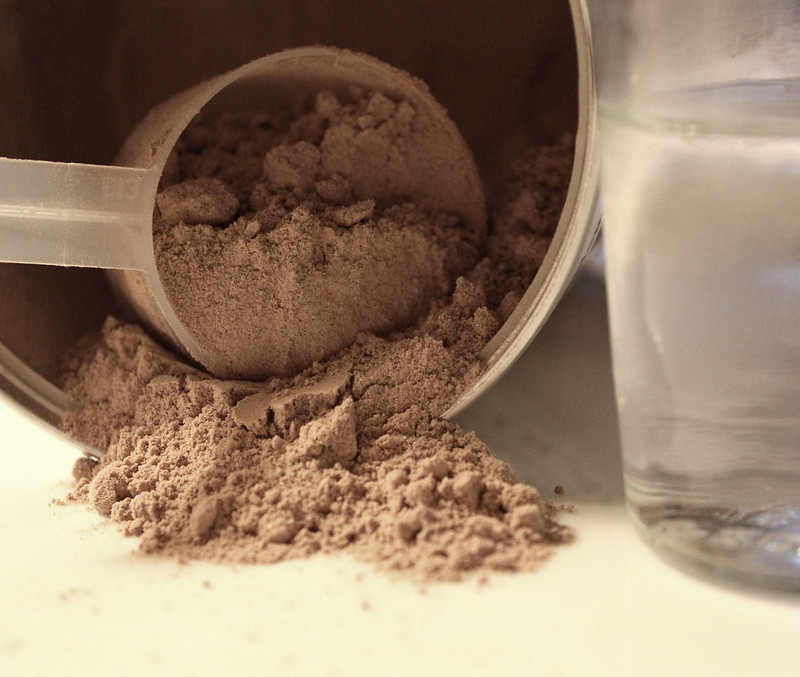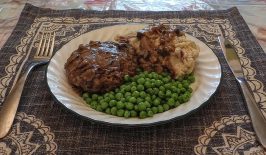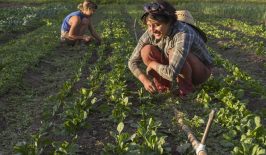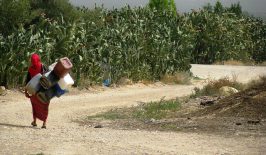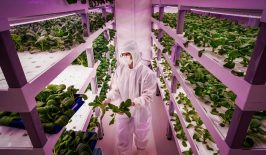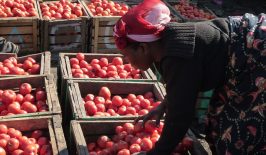Food production in agriculture is responsible for around 14 percent of global greenhouse gas emissions, meaning food production are potential areas in which savings in carbon emissions can be made. However, this fact alone is not enough for one start-up in Finland named Solar Foods. Not only do they hope to limit carbon emissions in the food sector, but also actively reduce it. It aims to do this by producing proteins that completely dispense with vegetable or animal ingredients. How do they do this? Well, the clue is in their name. They have found a way to create proteins from air, water and solar power.
Founded in 2017, the company is looking to implement and market the results of a project developed at Finland’s Technical Research Center (VTT). According to founder Pasi Vainikka, the most important assumption of the researchers was that the extraction of fossil fuels from the soil, their combustion and the release of the formed CO2 into the atmosphere is “fundamentally a bad idea”. Therefore, the team wanted to develop a method to convert CO2 extracted from the air into edible calories using solar power. “To accomplish such a complex task, a microbial cell was identified as the best structure for the task,” said Vainikka.
The result is an extremely protein-rich yellowish powder – christened Solein. Its production process is comparable to that of wine or beer: the microbes used by Solar Foods are placed in a liquid inside a bioreactor, the so-called growth medium. According to Vainikka, the liquid is continuously supplied with small bubbles of hydrogen and carbon dioxide as well as some nutrients. The CO2 is extracted from the air, while the hydrogen is added by electrolysis from water using electricity from renewable energy sources. The technology is extremely effective and consumes little electricity. The microbes “eat” the ingredients to grow and multiply. When the liquid thickens, part of it is removed and dried. The resulting powder consists of up to 65 percent proteins – similar to dried cells of soy or algae – amino acids, carbohydrates, fats and vitamins.
A Sustainable Alternative to Agriculture?

The production of the brine-like substance is therefore completely independent of agricultural resources. The process takes place in the laboratory and doesn’t require a large amount of space. So far it has been assumed that vegetable proteins are the most sustainable source of proteins from an ecological point of view, but the ecological footprint of this product is much smaller. Only ten litres of water are needed per kilogram of protein. In comparison, the cultivation of soya, the most widespread vegetable protein, requires about 2,500 litres per kilogram. Meat production is still far in excess of this level: Beef, for example, requires around 15,500 litres per kilogram.
Furthermore, not only does this technology use only small amounts of water and electricity, but it is also climate-neutral as it does not cause any CO2 emissions. If such a concept was able to effectively replace the production of agriculturally produced proteins, global carbon levels could be actively reduced.
However, the story does not end with there, as Solein shouldn’t be consumed in its powder form, and requires further processing. In the future, it is hoped it will be added to foods such as bread, pasta, vegetable milk alternatives or beverages as an additional source of protein, while it could also be used as an ingredient for vegetable meat alternatives. “Our technology should be regarded as a platform technology for the strategic separation of food production from agriculture and not just for the production of protein components,” explains Vainikka. Solar Foods currently expects a price point of around 7 to 10 EUR per kilogram while the company is currently working on gaining EU approval for its product, with market entry planned for 2021.
Promising, But Too Complex and Expensive?
The idea is technologically highly impressive and very sustainable, but some questions remain unanswered. It is uncertain whether a food product produced in the laboratory will be in sufficient demand to survive in the market. Although meat alternatives such as the “Beyond Meat” burger are currently experiencing a great upswing, many consumers continue to be sceptical of food produced without traditional vegetable and animal products. The complexity of the production process also means it may not be easily scalable in the long term.
This is a translation by Mark Newton of an original article that first appeared on RESET’s German-language site.
